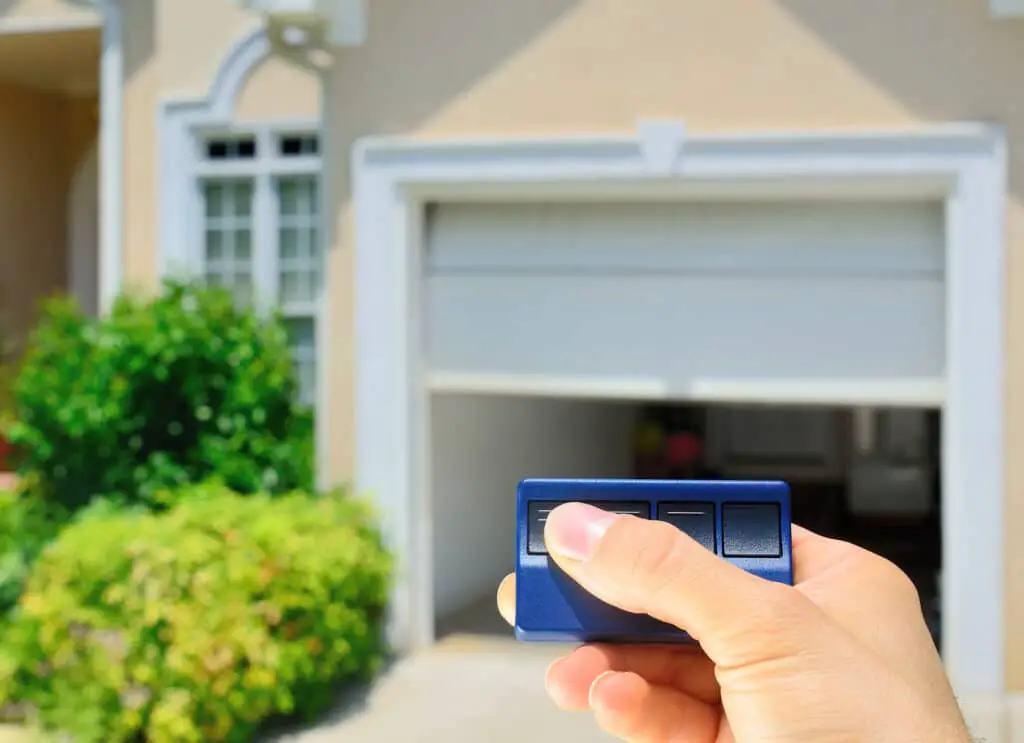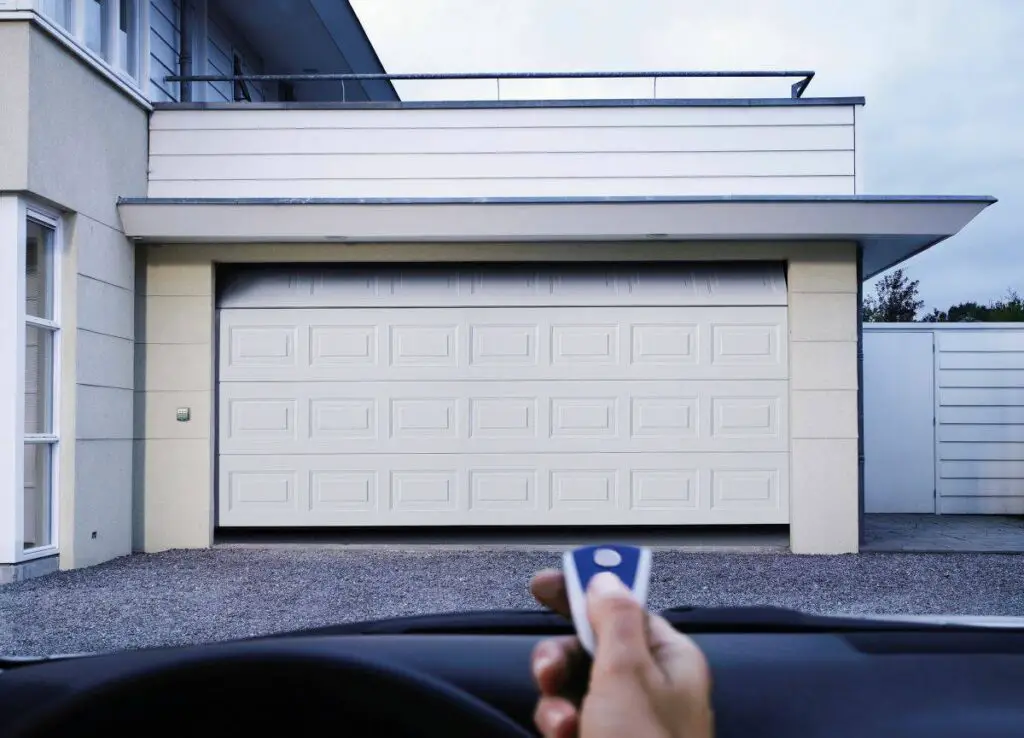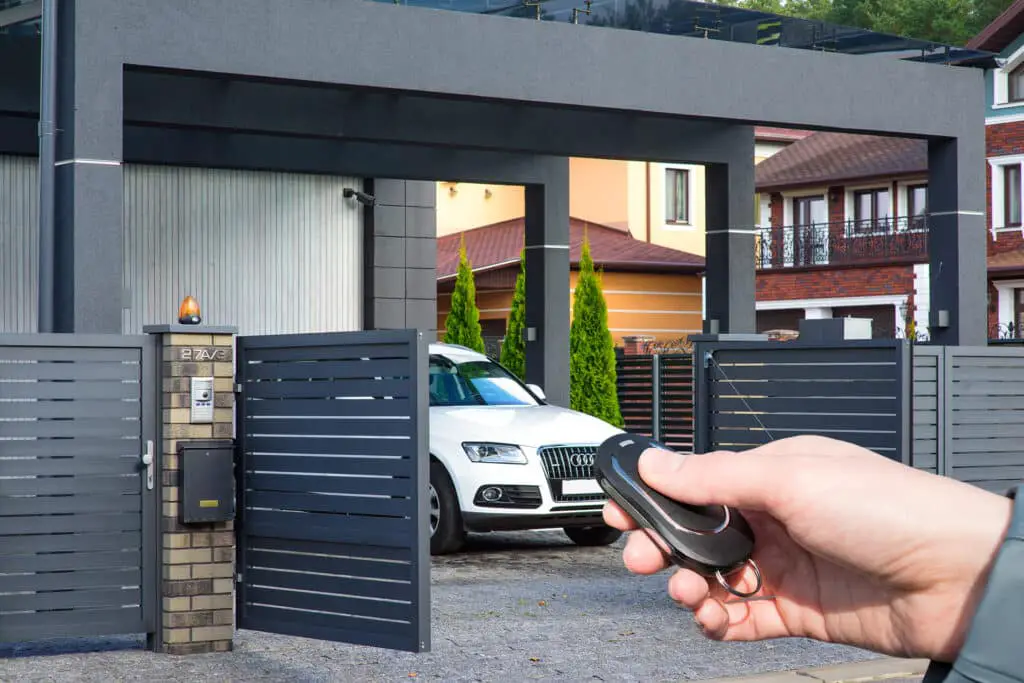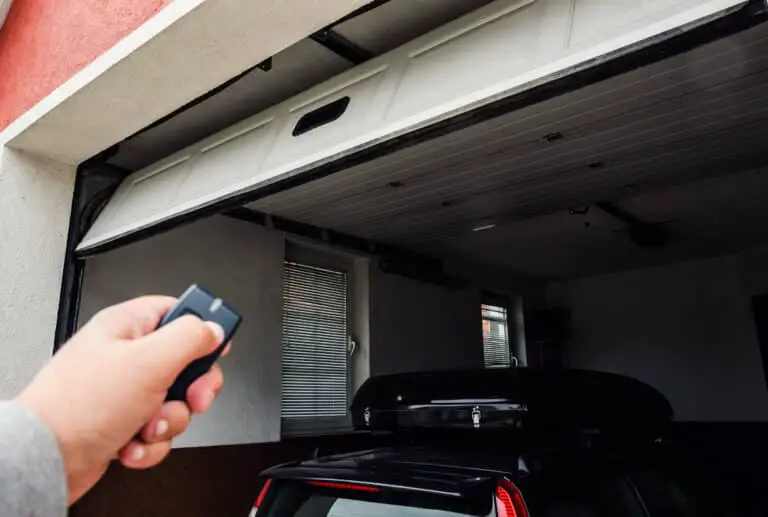Introduction
When facing the threat of a hurricane, securing your home becomes a top priority. While most homeowners take measures to protect their windows and doors, the garage door is often overlooked. However, neglecting to secure your garage door can pose significant risks during a hurricane, as it can become a weak point in your home’s structural integrity.
Securing a garage door for a hurricane involves a combination of reinforcement and preparation. One crucial aspect is ensuring the door itself is structurally sound and can withstand the forces exerted by high winds. Additionally, reinforcing the surrounding framework and tracks is necessary to prevent the door from being blown in or sucked out during the storm.
There are various methods and products available to secure a garage door, ranging from temporary measures to more permanent solutions. Temporary measures include installing hurricane panels or using reinforced braces to fortify the door. Alternatively, some homeowners may opt for a more permanent solution by replacing their existing garage door with a hurricane-resistant model.

How do you protect a garage door in a hurricane?
Attach Hurricane Panels
Hurricane panels attach to the exterior of the garage door and help protect your door from impact damage. If you have an older garage door, you will need to protect it from high winds to prevent damage to your garage and home.
Protecting a garage door during a hurricane is essential to safeguard your home and minimize potential damage. Here are several key steps you can take to protect your garage door during such extreme weather conditions:
Reinforce the garage door: Strengthen the existing garage door by installing a bracing system specifically designed for hurricane protection. These systems typically consist of horizontal and vertical braces that secure the door and prevent it from bending or collapsing under the force of high winds.
Install impact-resistant garage doors: Consider upgrading to a hurricane-resistant garage door. Steel or aluminum doors can resist severe winds and flying debris. Hurricane-resistant doors withstand penetration and remain structurally sound.
Secure weak points: Identify and reinforce any weak points around the garage door. Ensure that the tracks, hinges, rollers, and other hardware are securely fastened and in good condition. Reinforce or replace any damaged or worn-out components.
Install a garage door bracing kit: Temporary bracing kits are available in the market and can be installed prior to a hurricane. These kits typically consist of horizontal beams or vertical supports that provide additional reinforcement to the garage door. Follow the manufacturer’s instructions to properly install the bracing kit.
Should you lock your garage door during a hurricane?
As raging winds try to pry your garage door open, the momentum of the swinging door can rip off your roof. That’s why the state of Florida requires that all homes have wind rated garage doors and garage door locks. These precautions help keep your door — and your home — grounded.
We suggest locking your garage door during hurricanes. Strong gusts or flying debris might push the garage door open, so locking it can enhance security and stability. The following are reasons to lock your garage door during a hurricane:
Locking the garage door provides structural support. The door may not be blown in or sucked out during a storm, which might damage your home’s interior and stability.
Protection against debris: Hurricane winds take up and throw debris at great speeds. You may prevent flying debris from entering your garage and causing damage or harm by securing the door.
Reduce pressure differentials: Locking the garage door helps maintain home pressure differentials. In a storm, a blown-open garage door might cause pressure imbalance and roof damage.
Increased security: Locking the garage door deters looters and anyone who want to profit from the mayhem. Your property and possessions are more protected.
How do you secure a door during a hurricane?
You will want the added protection of a one-inch deadbolt when the winds and rains come, and if you have a double door, get a sliding bolt to go across both of them for the added strength and protection. All of this is great for your front door, but you should also consider other entranceways to your home.
Securing a door during a hurricane is crucial to protect your home from high winds and flying debris. Here are several steps you can take to secure a door effectively:
Reinforce the door: Start by ensuring that the door itself is in good condition. Repair or replace any damaged or weak parts, such as hinges, locks, or frames. Reinforce the door’s structural integrity by adding additional bracing or metal plates.
Install impact-resistant doors: Consider upgrading to impact-resistant doors designed to withstand the forces of a hurricane. These doors are made from reinforced materials like fiberglass, steel, or aluminum and are resistant to wind, debris, and water infiltration.
Add storm shutters or panels: Install storm shutters or panels over the door’s exterior. These protective coverings act as a physical barrier against high winds and flying debris. There are various types available, including metal, polycarbonate, or fabric panels, which can be installed permanently or temporarily.
Secure with deadbolt locks: Use deadbolt locks to enhance the door’s security and prevent it from being forced open by strong winds or intruders. Make sure the deadbolt extends deep into the door frame for maximum strength.
Reinforce the door frame: Strengthen the door frame by adding metal plates or braces. These reinforcements help distribute the forces exerted by strong winds and reduce the risk of the door being blown in or out.

What is the best way to secure my garage door?
6 Ways to make your garage door more secure
- Buy your garage door from a reputable supplier.
- Add an extra locking device.
- Choose an automatic garage door.
- Install security lighting.
- Keep your garage door locked.
- Don’t give thieves a place to hide.
Securing your garage door is essential to protect your home and belongings. Here are some of the best ways to secure your garage door effectively:
Reinforce the door: Start by ensuring that your garage door is in good condition. Check for any signs of damage, such as worn-out springs or cables, and repair or replace them as needed. Reinforce the door’s structural integrity by installing horizontal or vertical braces designed for hurricane protection.
Upgrade to a sturdy door: Consider investing in a high-quality, impact-resistant garage door. These doors are constructed with reinforced materials such as steel, fiberglass, or aluminum and are designed to withstand strong winds, flying debris, and attempted break-ins.
Install a security system: Add a security system specifically designed for your garage. Options include installing an alarm system that detects unauthorized entry, a motion sensor that triggers lights or sirens, or even a camera system that allows you to monitor the garage remotely.
Use a garage door lock: Enhance the security of your garage door by adding a manual or electronic garage door lock. Manual locks, such as T-handle locks or deadbolt locks, provide physical reinforcement. Electronic locks can be integrated with your home security system and offer convenience and added protection.
Secure the emergency release lever: Protect against unauthorized access by securing the emergency release lever of your garage door opener. This can be done by using a zip tie or installing a garage door lock release shield, which prevents the lever from being activated from the outside.
Should garage doors be open or closed during hurricane?
There are three main ways you can protect your garage door during a hurricane: Often, newer garage doors will come with extra bracing and pins that go on the sides. In this situation, make sure to close the door, unplug the garage door opener, and place the safety pins in the side foundation of the home.
During a hurricane, it is generally to keep your garage doors closed and secure. Closing the garage doors helps protect your home and minimize potential damage. Here are a few reasons why you should keep your garage doors closed during a hurricane:
Structural integrity: Keeping the garage doors closed helps maintain the structural integrity of your home. Closed garage doors act as a barrier against high winds, preventing them from entering and causing internal pressure that could lead to roof failure or other structural damage.
Protection from debris: Hurricanes generate strong winds that can pick up and propel debris at high velocities. Closed garage doors provide an additional layer of protection against flying debris, reducing the risk of damage to your vehicles, stored items, and the interior of your home.
Minimize water intrusion: Closed garage doors help minimize water intrusion into your garage and home during heavy rainfall associated with hurricanes. This can prevent potential water damage and flooding, which can be costly and time-consuming to repair.
Safety and security: Closed garage doors enhance the safety and security of your property during a hurricane. They act as a deterrent to looters and opportunistic individuals who may attempt to take advantage of the chaotic situation. Closed doors also prevent pets or other animals from escaping or entering the garage, ensuring their safety.
Where can I find a garage door brace or retrofit kit?
You can find garage door braces or retrofit kits at various locations, both online and offline. Here are some common places where you can search for these products:
Home improvement stores: Visit your local home improvement stores such as Home Depot, Lowe’s, or Ace Hardware. These stores often carry a range of garage door security products, including braces and retrofit kits. You can check their hardware or garage door sections for the availability of these items.
Online retailers: Browse online retailers such as Amazon, eBay, or specialized garage door equipment suppliers. These platforms offer a wide selection of garage door braces and retrofit kits. Read product descriptions, reviews, and ratings to ensure you choose a reliable and effective solution.
Manufacturer websites: Visit the websites of garage door manufacturers. Many of them offer garage door security products directly or provide a list of authorized dealers and retailers where you can find their products. Look for the “accessories” or “security products” sections on their websites.
Can I secure my garage door using sandbags?
While sandbags can be useful for flood protection and mitigating water damage, they are not typically recommended as the primary method to secure a garage door during a hurricane or strong winds. Sandbags alone may not provide sufficient reinforcement to prevent the garage door from being compromised by high winds or flying debris. However, they can be used as a supplementary measure in conjunction with other effective methods. Here are a few points to consider:
Limited effectiveness: Sandbags are primarily designed to redirect or absorb water. They may offer some resistance against low-level winds, but they are not specifically engineered to withstand the intense forces generated during a hurricane.
Potential for displacement: Sandbags can shift or be displaced by powerful winds, leaving the garage door vulnerable. They may also be less effective if the garage door is subjected to sustained winds or gusts from multiple directions.
Focus on structural reinforcement: It is more effective to focus on strengthening the garage door itself and reinforcing the surrounding framework. This can be achieved through the use of impact-resistant doors, reinforcement kits, braces, or professional installation of hurricane-resistant garage doors.
Consult with experts: It is advisable to consult with garage door professionals or local authorities who can provide guidance on the best methods to secure your specific garage door based on your location and the potential risks associated with hurricanes or severe weather conditions in your area.
How often should I check the garage door for maintenance and reinforcement?
Regular maintenance and reinforcement of your garage door are essential to ensure its proper functioning, longevity, and security. While the frequency may vary depending on factors such as usage and environmental conditions, it is generally recommended to check and perform maintenance on your garage door at least once every six months. However, it’s important to note that certain components may require more frequent attention. Here are some guidelines to consider:
Visual inspection: Conduct a visual inspection of the garage door and its components regularly. Look for signs of wear, damage, or misalignment. Pay attention to the springs, cables, rollers, hinges, tracks, and weatherstripping.
Lubrication: Apply lubrication to the moving parts of the garage door, such as hinges, rollers, and springs, to ensure smooth operation. Use a silicone-based or garage door-specific lubricant.
Balance and alignment: Test the balance and alignment of the garage door by disconnecting the opener and manually operating the door. It should move smoothly without any resistance or unusual sounds. If you notice any issues, such as the door not staying in place or moving unevenly, it may require adjustment or repair.
Reinforcement: Check the reinforcement mechanisms, such as braces or struts, if you have them installed. Ensure they are securely in place and not damaged or weakened.
Safety features: Test the safety features of your garage door, such as the auto-reverse mechanism and photo-eye sensors. These are critical for preventing accidents and should be functioning properly at all times.
Weather seals: Inspect and replace any worn-out or damaged weather seals around the garage door to prevent drafts, moisture, and pests from entering.

Conclusion
Securing your garage door for a hurricane is a crucial step in protecting your home and minimizing potential damage. By following the steps outlined, you can significantly enhance the structural integrity of your garage door. Temporary measures such as installing hurricane panels or reinforced braces provide effective protection during the storm, while more permanent solutions like investing in a hurricane-resistant garage door offer long-term benefits.
It should be accompanied by other necessary precautions, such as securing windows, doors, and outdoor items, as well as creating an emergency plan and stocking essential supplies.
The key to successfully securing your garage door for a hurricane lies in proper planning, preparation, and timely action. Stay informed about approaching storms, monitor weather updates, and ensure you have all the necessary materials and tools on hand well in advance. If you are unsure about the best approach or require professional assistance, do not hesitate to seek guidance from experts in the field.

